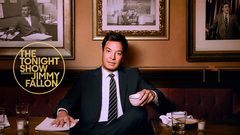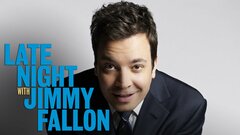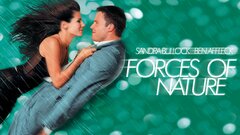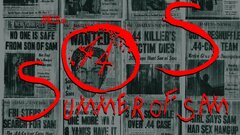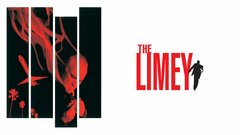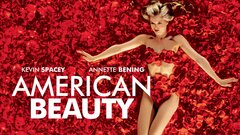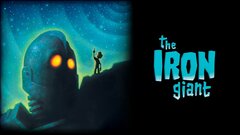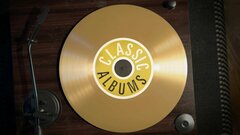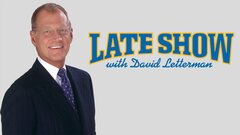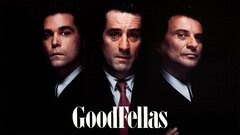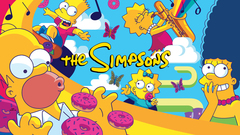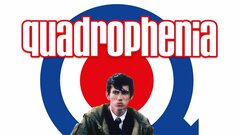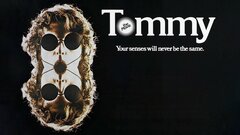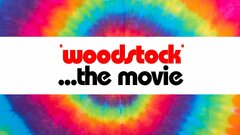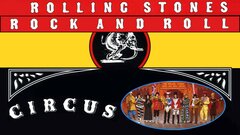If the Beatles personified peace and love and the Rolling Stones embodied lustful abandon, then the songs of their British rock peers the Who, as penned by guitarist Pete Townshend, were fueled by the pure, unadulterated frustration and desire of youth, as evidenced by such enduring songs as "I Can't Explain," "My Generation," "Behind Blue Eyes" and "Won't Get Fooled Again," as well as the groundbreaking rock operas Tommy (1969) and Quadrophenia (1973).
Townshend was also one of rock's most dynamic guitarists, employing devastating levels of force and feedback in his guitar playing, highlighted by his windmill strum and a penchant for destroying his instruments, which endeared him to not only generations of fans, but also the punk, metal and alternative rock movements, which borrowed heavily from his sonic palette. Townshend's talents would push the rock-n-roll art form to a higher level with the rock opera Tommy, a powerful and moving work that later became a Tony-winning Broadway musical.
After the death of Who drummer Keith Moon in 1979, Townshend distanced himself from the Who to craft a moderately successful solo career, but by the late 1980s, he was reuniting regularly with his surviving bandmates, even penning a new Who album, Endless Wire, in 2006. One of rock's most committed and passionate performers, Pete Townshend's boundless talents as a songwriter and guitarist elevated him to legendary rock god status.
Born May 19, 1945 in the London suburb of Chiswick, Peter Dennis Blanford Townshend was the eldest of three brothers by saxophonist Cliff Townshend, who played in a popular Royal Air Force Band known as The Squadronaires, and his wife, singer Betty Dennis. Younger brother Simon would later enjoy his own modest music career, both as a solo artist and as a member of the larger Who ensemble during post-reunion tours.
Townshend's childhood was, by many accounts, a difficult one: his parents had a combative relationship that was marked by frequent periods of lengthy separation, during which the young man was sent to live with a grandmother who suffered from mental illness. Townshend would later come to believe that he was sexually abused during this period, which would later reflect in elements of his work, most notably Tommy. Reuniting with his parents offered little comfort; the attention he received as an only child disappeared following the birth of his brothers, and Townshend's father often made cruel comments about his son's prominent nose.
He found solace in music, developing a keen fascination for rock music through repeat viewings of the 1956 film "Rock Around the Clock." Unlike many fellow British Invasion musicians, Townshend never developed much interest in American blues, preferring instead the tight rhythms and aggressive guitar sounds of rhythm and blues acts like Bo Diddley and Booker T and the MGs.
Townshend played banjo in his first group, a Dixieland jazz group called the Confederates, which also featured classmate John Entwhistle on trumpet. The pair would later form a more straightforward rock and roll band called the Scorpions with Townshend on guitar and Entwhistle on bass. While attending Ealing Art School in 1961, Entwhistle recruited Townshend to play rhythm guitar in the Detours, a rock-skiffle group led by guitarist Roger Daltrey.
The group soon shed its original singer and drummer, moving Daltrey to vocals and adding a manic teenaged drummer named Keith Moon to the lineup, which began billing itself as the Who in 1964. The quartet briefly dubbed themselves the High Numbers for "Zoot Suit/I'm the Face," a single that failed to reach its target audience in the growing mod movement. After signing with managers Kit Lambert and Chris Stamp, they adopted the Who moniker again and developed a loyal fan base with their aggressive, high-volume shows, which were frequently capped by Townshend and Moon destroying their instruments in an explosion of pent-up youthful frustration.
But Townshend's songwriting proved as powerful, if not more so, than his guitar work. Early Who songs like "Substitute," "I Can't Explain" and "My Generation" spoke volumes about the passion and frustration of British and later American youth, who would view Townshend rather than Daltrey as the true leader of the Who. Townshend soon began experimenting with the idea of extended concept songs like the nine-minute "A Quick One, While He's Away" from 1966's A Quick One.
A second lengthy piece called "Rael," from 1967's The Who Sell Out (1967) preceded Townshend's first full rock opera, Tommy (1968). Inspired in part by his study of works by the Indian spiritualist Meher Baba, the story of a deaf, mute and blind young man who became a messiah of sorts was widely praised as a landmark in rock music, as well as a career-defining work for Townshend.
After appearing at Woodstock and recording the dynamic Live at Leeds album, Townshend began working on a trio of private recordings dedicated to the teachings of Meher Baba. When the albums became widely bootlegged in America, Townshend compiled the songs into what would be regarded as his first official solo album, Who Came First (1971), which featured fellow Baba devotee Ronnie Lane of the Small Faces on one track.
He then began work on a new rock opera, titled Lifehouse, which would eventually become one of the Who's most popular albums, Who's Next (1972), which featured such signature songs as "Won't Get Fooled Again" and "Baba O'Riley." Following this success, Townshend penned his second official rock opera, Quadrophenia (1973), an intensely personal drama about a young mod who struggled to find his own place in the world in the midst of societal and familial pressures. It would surpass Who's Next as the band's highest selling album in the United States.
The mid-1970s proved to be a transitional period for both Townshend and the Who, with the band devoting more energy to live performance than recordings, and Townshend struggling with mounting addictions to alcohol and cocaine. In 1977, he took a break from the Who to re-team with Lane on Rough Mix, which featured an array of esteemed admirers, including Eric Clapton and Charlie Watts of the Rolling Stones.
The following year, he reunited with the Who for Who Are You (1978), which became the highest selling record of their career on the strength of the title track. However, the success of the album was overshadowed by the death of Keith Moon, who passed away from a drug overdose shortly after the album's release. While the Who continued to perform and record with ex-Faces drummer Kenney Jones, Townshend began laying the foundation for a solo career with Empty Glass (1980). Though he scored a Top 10 hit with the achingly heartfelt "Let My Love Open the Door," the rest of the album was fueled by the ever-increasing downward spiral of his personal life, which now included a marriage in collapse and an addiction to heroin.
Townshend released a second solo album, All the Best Cowboys Have Chinese Eyes, in 1982, but the record fared poorly by comparison to its predecessor. He was soon back in the Who camp for 1982's It's Hard, which became the band's final album for decades. Townshend announced that he was no longer capable of writing new material for the Who, which prompted a massively successful farewell tour in 1982. Following its conclusion, Townshend gained sobriety and dove into a variety of projects, from the album Scoop, which compiled demo recordings of Who classics, to a collection of short stories titled Horse's Neck (1984).
He briefly reunited with the Who for the Live Aid concert at Wembley in 1985 before returning to his solo music career with a bleak record about life in a West London council estate called White City: A Novel reached the Top 30 on the Billboard albums chart. The record was accompanied by a short film, for which Townshend assembled Deep End, a new band that featured Pink Floyd's David Gilmour and studio musician Pino Palladino, who would later replace John Entwhistle as the Who's bassist following his death in 2002.
The Iron Man: A Musical (1989) was Townshend's third attempt at a rock musical, but the gentle children's fantasy, which featured guest contributions by blues legends John Lee Hooker and Nina Simone, as well as Daltrey and Entwhistle, was a commercial failure, though director Brad Bird's animated adaptation of the Ted Hughes source novel, which was co-produced by Townshend, received near-universal critical acclaim. Its release was also overwhelmed by Townshend's reunion with his surviving band mates sans Jones, who was replaced by Simon Phillips, for a 25th anniversary tour that sold over two million tickets. Critics noted that Townshend restricted his guitar playing during the tour to an acoustic model and on occasion, performed behind a Plexiglas barrier due to hearing issues caused by decades of high volume concerts.
The following year, the Who was inducted into the Rock and Roll Hall of Fame.
In 1993, Townshend released Psychoderelict, a new rock opera based in part on his own experiences as a rock musician while composing the Lifehouse project. However, the record was not only widely panned, but also overshadowed by the runaway success of his adaptation of "Tommy" as a stage musical. Though critics were divided on the production, its high-energy staging and the enduring music generated five Tony Awards, including Best Original Score for Townshend. Three years later, he reteamed with Daltrey and Townshend to mount a performance of Quadrophenia at Hyde Park in London.
Response was so positive that the Who toured behind the album for the better part of the next two years. After releasing a massive six-disc set devoted to the Lifehouse project in 2000, Townshend toured regularly with the Who until 2002, when John Entwhistle died of a cocaine-related heart attack in Las Vegas, NV. After a brief delay, Townshend and Daltrey continued the tour with Palladino as the bassist's permanent replacement.
In 2003, Townshend was named as a subject under investigation as part of Operation Ore, a British police operation designed to ferret out individuals visiting child pornography sites on the Internet. He later admitted that he had used a credit card to access a site advertising such material as part of research he was conducting on the subject and its relations to his own experiences as a child. A four-month investigation eventually concluded that Townshend was not in possession of any illegal images, and he subsequently accepted an official caution for his actions.
However, the stigma of association with child pornography, even after he was proven innocent, would linger for several years, most notably in 2010 when children's advocate groups protested the Who's performance at Super Bowl XLIV. Townshend soon devoted his energies towards songwriting, penning the first new Who songs in over two decades as part of the singles anthology The Who: Then and Now (2004). The songs, "Real Good Looking Boy" and "Old Red Wine," preceded the 2006 release of Endless Wire the first album of new Who material since 1982.
The album, which featured a mini-opera called "Wire & Glass," debuted in the Top 10 on both the U.S. and U.K. albums chart, and spawned a tour that lasted through 2007. In 2008, Townshend and Daltrey were recognized by the Kennedy Center Honors for their contribution to the performing arts.
In 2011, Townshend and Daltrey launched the Daltrey/Townshend Teen and Young Adult Cancer Program at the Ronald Reagan UCLA Medical Center in Los Angeles, which was funded by the band's charity, Who Cares. The following year, Townshend dismissed years of rumors that his tinnitus would prevent him from performing live by announcing a 35-date tour focusing on Quadrophenia in late 2012.
His return to the stage was aided in part by fellow musician Neil Young, who recommended that Townshend use new equipment to deal with the high volume of the concert stage. That same year, the Who performed as part of the closing ceremonies of the London 2012 Olympic Games. A new Who album was also slated for a 2012 release, as well as a new musical tentatively titled "Floss" and the publication of Townshend's long-delayed autobiography, Who I Am. By Paul Gaita














